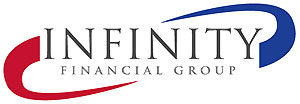By Mason Myers , | April 7, 2015 (with permission)
One of the most important steps of selling a business is when a buyer performs a “Quality of Earnings” review of the seller’s financial statements. The idea is that the buyer will verify the earnings of the underlying business and any “add backs” that the seller added to the earnings as a representation of what a new owner could expect to receive in cash flow.
Below are the basics of a Quality of Earnings due diligence project:
Who: For businesses larger than $500,000 or $1 million in earnings, the buyer will likely hire an accounting due diligence firm. Their job is to get into the details and prepare spreadsheets and reports of their findings for the buyer. You can expect these firms to be extremely detail oriented and prepared to double-check everything for their client.
What: The diligence firm will provide a request list of documents with the goal of being able to verify the earnings the seller has represented. Most likely, the firm will spend a few days to a week on site at the company to ask more questions, fine-tune requests, and ask follow-up questions as they get into the details.
When: This usually happens after a Letter of Intent is signed between the buyers and the sellers and it is usually the first diligence project undertaken by the buyers. The buyers want to verify the earnings power of the business before they spend money with the attorneys to draft the legal documents required.
Why: Quality of earnings due diligence is just good practice. Many times, sellers do not represent their earnings power properly — not because of any ill intent, they are simply not accounting experts. The financial statements need to be in proper accounting format so that it is in the language that the buyers and the lenders all understand. For businesses whose accounting is very well done and they did not make any aggressive add-backs, this will be a “check the box” part of diligence and very easy. If your accounting is not well done, however, this could be a major issue.
What are some things that a Quality of Earnings diligence firm may find:
- Revenue or expenses in incorrect periods. It is sometimes easy for revenue or expenses to be accounted in an improper period. Those are easy for diligence firms to spot.
- Improper accrual accounting. This is related to the first point, in that accrual revenue or expenses may not be done properly which results in revenue or expenses being in the improper period. In addition, many businesses that have deferred revenue (customers pay before the service is delivered) do not properly account for the revenue and take it too early causing their earnings to be higher than accounting rules would allow.
- Discontinued Operations. If the seller closed a money-losing business, buyers will look at that as a nice gain for the future. On the other hand, if you had a money-making business that you are no longer operating, the buyer will not want to include that in the earnings power of the business going forward.
- Open employee positions or missing expenses. Are there open positions on your org chart? If so, the buyer will assume you need those positions and reduce their earnings estimate to account for it. Or, is there an obvious expense that you were able to avoid historically, but will be needed by the buyers going forward?
- Improper add-backs. Many times sellers want to make their earnings look as strong as possible, for obvious reasons. Some add-backs are logical and correct such as salaries for owners that are larger than what is needed to pay a professional manager. On the other hand, other add-backs are not as defensible and I recommend not being too aggressive with add-backs as it inevitably causes issues.
- Pro forma adjustments (may not be anything you can influence). While you may not be able to affect this, many buyers will add in other expenses that they assume they will need such as a budget to pay an audit firm to audit the financial statements if they had not been audited historically. Or, maybe the buyer will want to expand the board of directors and include a budget to do that.
In my opinion, the more that sellers know about the process of selling their business, the more that everyone can be assured that the transaction will go smoothly and efficiently for everyone involved. Due diligence is a very important step, and the most important part of due diligence is the Quality of Earnings verification.
